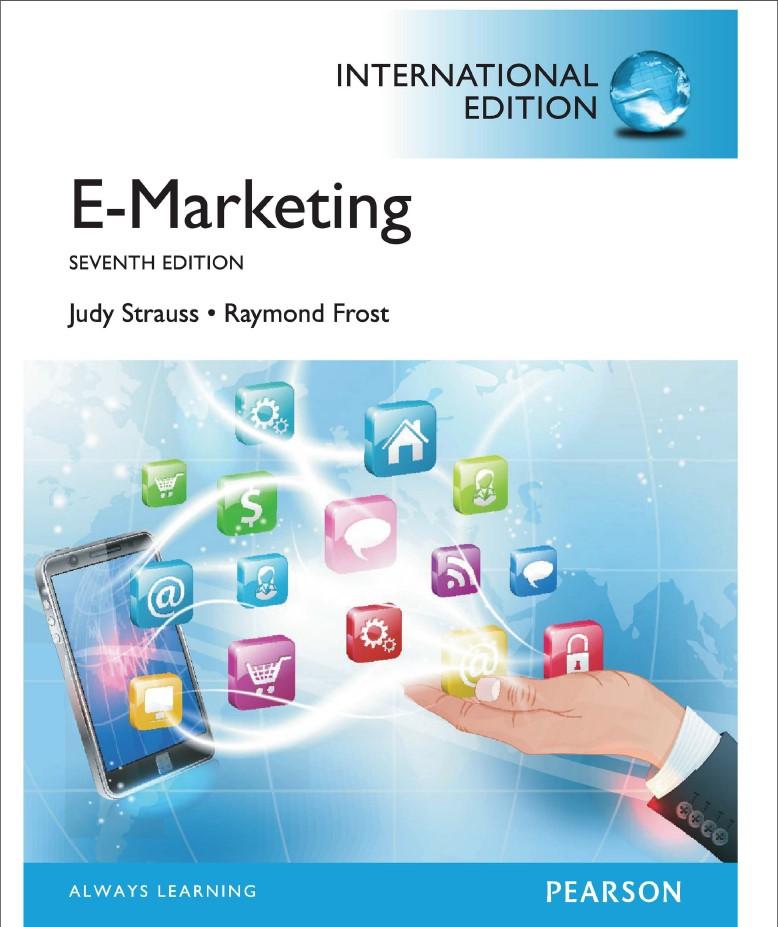Question
. Individuals with homeowner's insurance tend to become more careless about locking up their possessions when leaving their homes.This is an example of... Group of
. Individuals with homeowner's insurance tend tobecome more carelessabout locking up their
possessions when leaving their homes.This is an example of...
Group of answer choices
a. adverse selection
b. moral hazard
c. screening
d. None of the above
Flag question: Question 2
Question 2
1pts
2. You offer an extended product warranty that is purchased by a few customers.Your
engineers tell you that your product typically fails 2% of the time.However, there is a strong likelihood that the warranty claim rate will probablyexceed2% of warranty purchasers.
Which of the following is a valid reason for why this might happen?
Group of answer choices
a. Adverse selection will lead those who are more reckless to purchase the warranty
b. Moral hazard will lead those who purchase the warranty to be more careful
c. Adverse selection causes your engineers to systematically overestimate product failure rates
d. All of the above
Flag question: Question 3
Question 3
1pts
3. A difference between moral hazard and adverse selection is that...
Group of answer choices
a. moral hazard deals with pre-contractually determined public information
b. moral hazard deals with post-contractually determined private information
c. adverse selection deals with pre-contractually determined public information
d. adverse selection deals with post-contractually determined private information
Flag question: Question 4
Question 4
1pts
4. To incentivize R&D, the government proposes to pay for a company's development costs if its
product does not succeed. This would likely lead to...
Group of answer choices
a. the company developing a lot more products with a low risk of failure
b. the company developing a lot more products with a high risk of failure
c. the company developing only low risk products
d. the company going bankrupt
Flag question: Question 5
Question 5
1pts
5. Sam can make an investment that will cost him $200 up front. The investment is predicted to
yield revenues of $1000 one-half of the time and $0 the other half of the time.
However, Sam has decided that he doesn't want to deal with paying back a loan, which means
that if the investment doesn't work out, he will in fact lose his initial $200 investment amount.
Given that he's putting up his own money to make the investment, what is Sam's expected
profit?
Group of answer choices
a. $200
b. $300
c $400
d.$500
Flag question: Question 6
Question 6
1pts
Chapter 21
6. A potential problem arises in principal-agent relationships because...
Group of answer choices
a. the principals and the agents have identical goals
b. the agents never know what is expected of them after they've been hired
c. the principals may have difficulty effectively monitoring the agents after they've been hired
d. None of the above
Flag question: Question 7
Question 7
1pts
7. In a situation involving a car salesman and a dealership, the dealer is the...
Group of answer choices
a. principal
b. agent
Flag question: Question 8
Question 8
1pts
8. If a principal is trying to reduce agency costs by gathering information about the agent's
"type," she is most likely trying to solve the problem of...
Group of answer choices
a. adverse selection
b. moral hazard
Flag question: Question 9
Question 9
1pts
9. Consider an apple orchard owner deciding how to incentivize the fruit pickers.The owner pays the pickers on a "per-pound-harvested" basis, but adjusts the compensation rate higher during poor harvest seasons.
As a consequence of this policy, it's very possible that...
Group of answer choices
a. the pickers' efforts would not be influenced by the compensation rate
b. the pickers would claim poor harvests in order to be paid higher piece rates even during bountiful harvest seasons
c. the pickers would claim good harvests in order to be paid higher piece rates even during poor harvest seasons
d. None of the above
Flag question: Question 10
Question 10
1pts
10. Sales agents being paid afixed dollar amountas their compensation for making sales are more likely to...
Group of answer choices
a. tell their bosses that they need to negotiate lower prices to make sales
b. tell their bosses that they need to negotiate higher prices to increase company profits
c. have no preference on whether to negotiate higher or lower prices
Flag question: Question 11
Question 11
1pts
11. Typically, a franchisee works ________ than a salaried manager of company store because...
Group of answer choices
a. less hard; he doesn't get to keep the additional profits he generates
b. harder; he gets to keep the additional profits he generates
c. less hard; he is more likely to be an "unmotivated" personality-type
d. harder, he doesn't get to keep the additional profits he generates
Flag question: Question 12
Question 12
1pts
12. A firm wants to stop its sales agents from pricing too "aggressively" (i.e., quoting excessively low prices) in order to make sales.
The firm tries to accomplish this goal by requiring the agent to first obtain a marketing manager'spermissionto reduce pricebelowa certain amount.
It is likely that this solution will only be successful in the long-run if...
Group of answer choices
a. the marketing manageralwayshasno prior informationabout a given sale - to prevent a biased decision being made by the manager
b. the manager getsallof the relevant information about the saledirectlyfrom the sales agent only
c. asufficientamount of unbiased information about the sale is transferred to the manager - to prevent an unprofitable price reduction
d.allinformation that's transferred to the manager about the sale comes from a sourceotherthan the sales agent
Step by Step Solution
There are 3 Steps involved in it
Step: 1

Get Instant Access to Expert-Tailored Solutions
See step-by-step solutions with expert insights and AI powered tools for academic success
Step: 2

Step: 3

Ace Your Homework with AI
Get the answers you need in no time with our AI-driven, step-by-step assistance
Get Started


